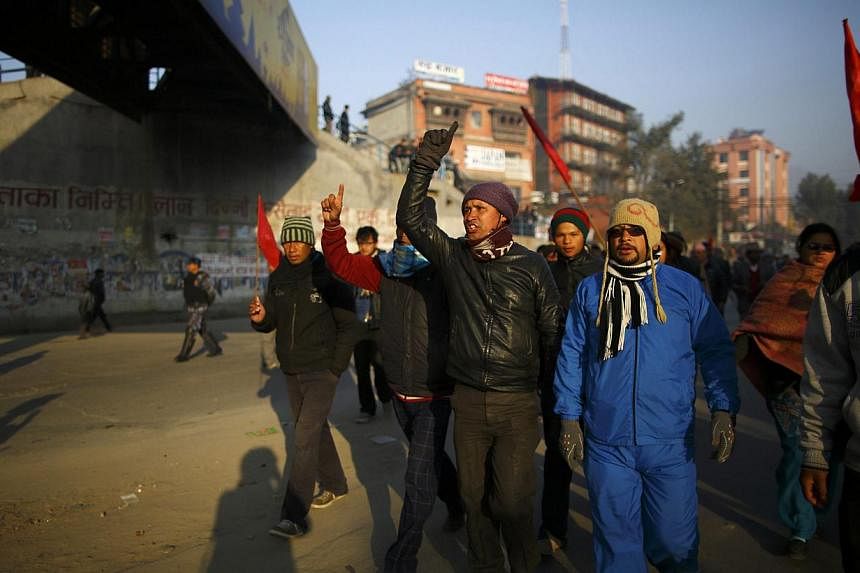KATHMANDU (AFP) - Nepalese police arrested dozens of protesters Tuesday for attacking vehicles during a Maoist-led strike called before next week's deadline to draft a constitution.
Protesters belonging to a 30-party alliance headed by the former Maoist rebels vandalised a dozen vehicles defying the strike call in the capital Kathmandu, police spokesman Dinesh Acharya told AFP.
"In two cases, protesters broke the windows of moving vehicles. In another case cadres threw stones at a taxi, injuring a passenger inside," Mr Acharya said.
"We have arrested more than 40 cadres from the protesting parties for vandalising vehicles," he said.
The strike, which closed down factories, schools, colleges and public transport, comes nine days before Nepal's deadline to draft a new constitution and conclude a peace process begun after Maoist rebels laid down arms to end their 1996-2006 insurgency.
Opposition parties organised the one-day strike to put pressure on politicians from the ruling coalition. The coalition is pushing for the country's constituent assembly to put disputed issues to a vote and publish a draft constitution by January 22.
"We called the strike to oppose ruling parties' attempt to establish a new constitution by exploiting their majority numbers in the assembly," said Prem Bahadur Singh, opposition alliance spokesman. "We will call more protests if the ruling parties neglect our demands."
Opposition leaders have warned against holding a vote to push through a new constitution and said the draft document must take the views of all parties into account.
A key sticking point concerns internal borders, with the opposition pushing for new provinces to be created along lines that could favour historically marginalised communities such as the "untouchable" Dalit caste and the Madhesi ethnic minority.
Other parties have attacked this model, calling it too divisive and a threat to national unity.
Despite extensive discussions since national polls in November 2013 and the appointment of a new prime minister last February, the parties have failed to agree on key issues.
The Himalayan nation has endured prolonged political limbo since 2006, when the Maoists signed a peace deal which paved the way for constituent assembly polls two years later.

